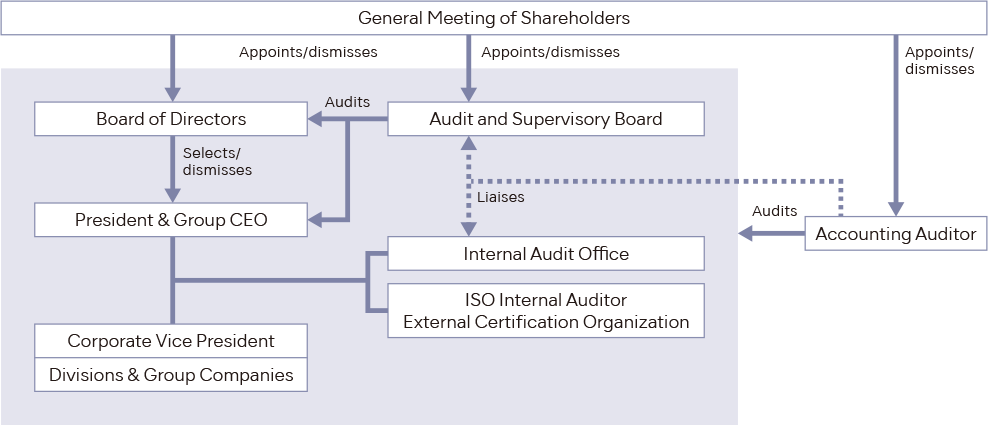CORPORATE GOVERNANCE
Basic Approach
NSK's basic management policy is to increase its corporate value as a global company that is trusted by shareholders and other stakeholders.
As such, we promote the strengthening and enhancement of our corporate governance system.
Outline of the Management System
Corporate Governance System

Board of Directors
NSK positions a board of directors as the management decision-making organization, and thus judges and makes decisions regarding matters important to our Group. The Board of Directors holds regular meetings, as well as irregular meetings as required, at which decisions are made on key management issues and work execution is supervised. The Board of Directors meetings are attended by directors and corporate auditors, who provide their opinions as appropriate to help strengthen our audit functions.
Appointment of Directors
Designation of candidates for directors and corporate auditors at NSK is made through resolutions of the Board of Directors regarding candidates recommended by the representative directors in consideration of their character, knowledge, experience, and abilities, and based on the policy of comprehensively considering the right person in the right place. In addition, designation of candidates for corporate auditors is done with the agreement of the Audit and Supervisory Board.
Outside Directors
When appointing outside directors and outside corporate auditors, NSK refers to criteria such as the independent standards stipulated by the Tokyo Stock Exchange, appointing those who have no vested interests in us and no risks of conflicts of interest with general stockholders. They must also have superior character, the knowledge, abilities, and wealth of experience to accurately, fairly, and efficiently carry out management of the Company, and high ethical standards.
Audit and Supervisory Board
NSK has an audit and supervisory board composed of corporate auditors. Based on the audit plans set by the Audit and Supervisory Board, members will attend Board of Directors meetings, exchange opinions with the accounting auditors and internal Audit Department, and carry out other activities to audit management activities, including the directors' performance of their duties.
